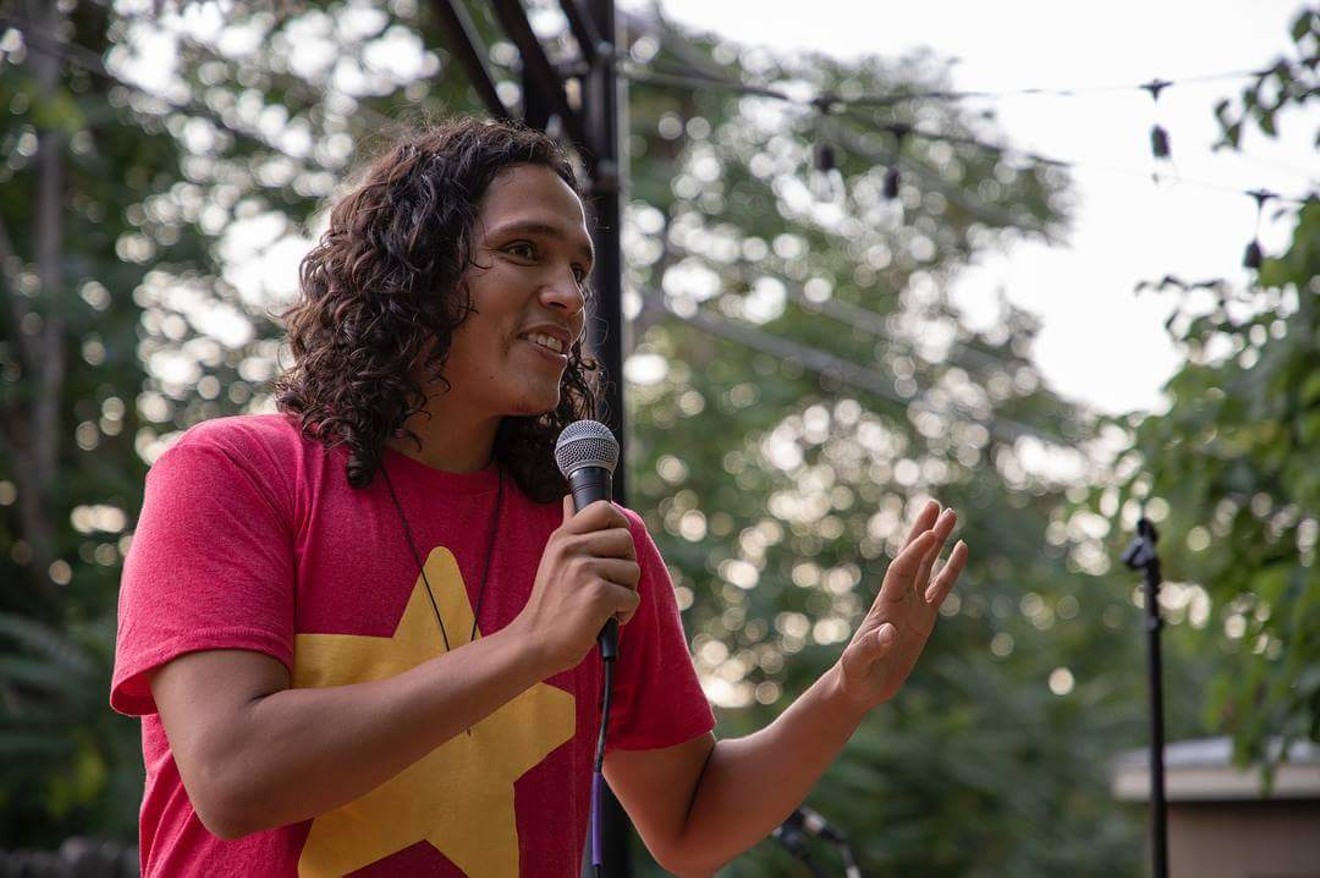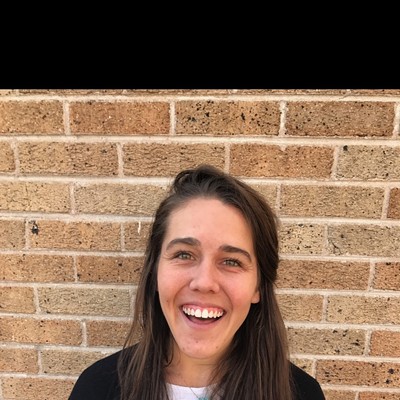Denver poet Franklin Cruz was eleven when his family moved from a small town in Texas to the Mile High City. At the time, he considered himself a “nerd,” and his favorite book was The Encyclopedia of Wildlife; he had never considered pursuing writing, but his mother encouraged him to.
“[T]he only things I’d ever written were short stories for kindergarten, first grade and second grade,” Cruz explains. “They were good, you know? There was definitely potential there. I wouldn’t say there was full-on talent, but there was potential. So after that I went on and auditioned for the creative writing department at [Denver School of the Arts]. I got in and was there from sixth through twelfth grade... . That was honestly probably the best thing to ever happen to me, just because they put you through the wringer.”
There he learned to write in various genres, from memoir to flash fiction. But during middle school, Cruz was struggling with what he describes as a strong dis-identity disorder.
“Mainly because I grew up poor and I grew up in and around a lot of Latino families, and by conditioning, I saw that and thought, ‘Oh, I guess Latino people must be poor,’ and all of that,” he recalls. “Mainly because I hadn’t really learned about perspective. I hadn’t learned about cultural relevance and things like that. I also didn’t know anything about history. So I literally just saw all these brown and black people in this community and being like, ‘Oh, my God, this is all that we have. I don’t want to be this.’”
But later a Latina teacher took over the creative-writing department at DSA. She introduced the class to more Latino poets, and Cruz discovered new narratives within his own culture.
“I was getting all these different stories that I had never really gotten, because my parents were immigrants that moved to the United States,” Cruz says. They were "undocumented, very low education, even though my dad got a full-ride scholarship to the University of Monterey. But my grandpa was living over here at the time working and told him he had to give up his scholarship to stay in his small home town in rural, poor Mexico and work. ... I knew miseducation and I knew no education.”
In 2011, a creative-writing classmate of Cruz's encouraged him to join the local youth poetry slam team Minor Disturbance.
“I was one of the people who ended up being recruited,” he says. “Mainly because I was like, okay — went to the [Mercury Cafe], saw it a couple times, did the open mic, finally did the slam. First slam I ever did, I won. First slam-off I ever did for the youth team, I got on the team. That literally shifted everything.”
He notes that slam poetry does have its pros and cons, but the art form gave him a deeper understanding of the world around him, which allowed him to dive deeper into his own story.
“As far as the sociology or the sociological approach to [slam poetry], you know, understanding the different branches of class and gender and sexual orientations and all of their different intersections — that’s where I started really appreciating the historical side of things,” he explains. “Because the historical-socio side of it, that’s something that slam really brings into perspective. Like, ‘Okay, where did we come from? How are those things affected? What systems were made from those effects? How are those systems still in place, good or bad?’ Taking that concrete and really, really critical approach and then also mixing in the self-empowerment of being like, ‘This is my story, this is my voice.’”
It was one of the first times he acknowledged the power and value of his voice.
“The phrase ‘My voice matters’ had never really exited my mouth before,” he says. “And even when it had, it had not had the weight that it does now.
“When I first started, I was not as powerful as I am now, mainly because I was a lot softer back then,” he says. “My poetry was super imagery-based. My tone and my entire delivery were way softer. So now, to have the metaphors that I do, to have the delivery that I do, to have the intention and vulnerability that I do, is very much attributed to the fact that I learned that my voice mattered, I applied that my voice mattered, I believed that my voice mattered, and I taught that my voice mattered. That whole four-step process of 'Say it, believe it, you are it, teach it' was like, ‘You know what? Yeah, I have things to say, and they matter.’”
Cruz has gone on to perform locally, compete in slams on teams like Slam Nuba, host workshops at universities across Colorado and host slams and open mics, like the Sunday night open mic and slam at the Mercury. In January 2018, he was able to combine his passions for poetry and science as an educative performer with the Denver Museum of Nature & Science. In his work, he wants to teach his students that their voices matter, too.
“Now when I tell kids, ‘Your voice matters,’ legitimately, I mean it,” Cruz says. “Like, take that for its full worth. Let it be Thor’s hammer. Let it be the freaking wind, however you want to say it. These things are real. Whether it is that cool breeze that can just completely soothe an entire day or it is that force to be reckoned with — both of those things are important on either end of the spectrum.”
In his work within both science and poetry, he thinks science can answer the “how” of life’s occurrences while poetry can aid in explaining the “why.”
“I find myself mixing the two disciplines all the time,” he notes. “Like observational skills. Across the board, in any form of work you do — observational skills are the best thing to do. But I love the way that poetry teaches observational skills, because for me, it’s literally ‘Notice the nuance of things.’ When is anyone ever teaching about nuance? I love the observational skills of science, because it’s like ‘Notice the notable things,’ you know?”
While it may be hard for some to imagine such a seamless blend of science and art, Cruz finds it to be natural: “I think the fact that I have such an artistic side and such a scientific side is the leading factor of who I am.”
Franklin Cruz will host a workshop from noon to 5 p.m. Saturday, September 15, at the Denver Museum of Nature & Science, 2001 Colorado Boulevard.
[
{
"name": "Air - MediumRectangle - Inline Content - Mobile Display Size",
"component": "12017618",
"insertPoint": "2",
"requiredCountToDisplay": "2"
},{
"name": "Editor Picks",
"component": "17242653",
"insertPoint": "4",
"requiredCountToDisplay": "1"
},{
"name": "Inline Links",
"component": "18838239",
"insertPoint": "8th",
"startingPoint": 8,
"requiredCountToDisplay": "7",
"maxInsertions": 25
},{
"name": "Air - MediumRectangle - Combo - Inline Content",
"component": "17261320",
"insertPoint": "8th",
"startingPoint": 8,
"requiredCountToDisplay": "7",
"maxInsertions": 25
},{
"name": "Inline Links",
"component": "18838239",
"insertPoint": "8th",
"startingPoint": 12,
"requiredCountToDisplay": "11",
"maxInsertions": 25
},{
"name": "Air - Leaderboard Tower - Combo - Inline Content",
"component": "17261321",
"insertPoint": "8th",
"startingPoint": 12,
"requiredCountToDisplay": "11",
"maxInsertions": 25
}
]












